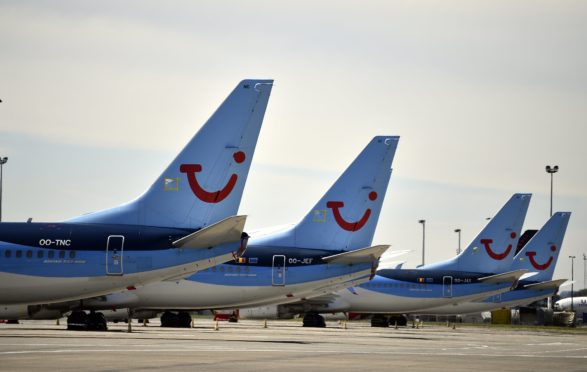
Two-week quarantines will be imposed on new arrivals to the UK from June 8, with fines for anyone who breaches the measure to prevent new waves of coronavirus from overseas.
Home Secretary Priti Patel announced on Friday that mandatory self-isolation would not apply to people coming from Ireland, medics tackling Covid-19 and seasonal agricultural workers.
Passengers will have to fill in a form providing their contact and travel information so they can be traced if infections arise, and they could be contacted regularly during the 14 days and face random checks from public health authorities to ensure their compliance.
Breaches would be punishable with a £1,000 fixed penalty notice in England, or prosecution with an unlimited fine, while devolved nations can set out their own enforcement approaches.
Border Force will be able to refuse entry to foreign citizens who are not UK residents during border checks while removal from the country could be used as a last resort, the Home Office said.
Anyone arriving by air, sea or rail will be advised to use personal transport to head to their accommodation and once there not leave for 14 days.
They will not be allowed to accept visitors, unless they are providing essential support, and should not go out to buy food or other essentials “where they can rely on others”, the department said.
The Home Office said if accommodation does not meet necessary requirements – with hotels, or with friends and family listed as options – they will have to self-isolate in hotel accommodation arranged by the Government.
Officials said that those the new entrant is staying with would not need to quarantine, but they should avoid contact with each other where possible.
Ms Patel said: “As the world begins to emerge from what we hope is the worst of the coronavirus pandemic, we must look to the future and protect the British public by reducing the risk of cases crossing our border.
“We are introducing these new measures now to keep the transmission rate down and prevent a devastating second wave.
“I fully expect the majority of people will do the right thing and abide by these measures. But we will take enforcement action against the minority of people who endanger the safety of others.”
The announcement will likely provoke fresh anger from the aviation industry, with airlines warning the measures could be disastrous for them.
Earlier, the chief executive of the Airport Operators Association, Karen Dee, told the Commons home affairs committee that drastic reductions in passengers “may simply lead to a prolonged shutdown of all aviation”.
The Airlines UK trade body said thousands of jobs and the economy’s recovery would be jeopardised by the plan, and called for ministers to carry out “robust, transparent and evidence-led” reviews every three weeks.
Chief executive Tim Alderslade said: “Introducing a quarantine at this stage makes no sense and will mean very limited international aviation at best.
“It is just about the worst thing Government could do if their aim is to restart the economy.”
Fresh questions will also be asked why the measure was not imposed early on in the pandemic.
Home Office chief scientific adviser Professor John Aston said: “The scientific advice so far has been clear: while there has been significant community transmission of the virus within the UK, the impact of putting in place additional border restrictions would have been negligible to the spread of the virus.
“However, the spread of the virus within the UK is now lessening. We have been successful in getting the reproduction number R – the average number of new people infected by one infected person – below 1.
“As the number of infections within the UK drops, we must now manage the risk of transmissions being reintroduced from elsewhere.”
The Home Office said arrivals would be encouraged to download the NHS contact tracing app at the border “once rolled out nationally”.
A full list of exemptions from the measure will be published online, but it will include:
– Road haulage and freight workers
– Medical professionals travelling to help the coronavirus effort
– Anyone moving from within the common travel area covering Ireland, the Channel Island and the Isle of Man
– Seasonal agricultural workers who will self-isolate on the property they are working.
Ministers were continuing to consider forging so-called air bridges with other nations that have low transmission rates in order to allow some international travel.

Enjoy the convenience of having The Sunday Post delivered as a digital ePaper straight to your smartphone, tablet or computer.
Subscribe for only £5.49 a month and enjoy all the benefits of the printed paper as a digital replica.
Subscribe